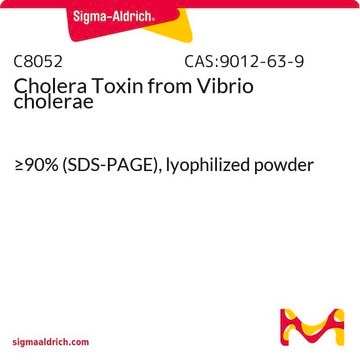3867
Hydrocortisone
Steroid hormone of the adrenal cortex with anti-inflammatory properties.
Synonym(s):
Hydrocortisone, Cortisol
About This Item
Recommended Products
Quality Level
Assay
≥98% (TLC)
form
solid
manufacturer/tradename
Calbiochem®
storage condition
OK to freeze
color
white to off-white
solubility
ethanol: 15 mg/mL
shipped in
ambient
storage temp.
10-30°C
InChI
1S/C21H30O5/c1-19-7-5-13(23)9-12(19)3-4-14-15-6-8-21(26,17(25)11-22)20(15,2)10-16(24)18(14)19/h9,14-16,18,22,24,26H,3-8,10-11H2,1-2H3/t14-,15-,16-,18+,19-,20-,21-/m0/s1
InChI key
JYGXADMDTFJGBT-VWUMJDOOSA-N
General description
Biochem/physiol Actions
Steroid hormone of the adrenal cortex with anti-inflammatory properties
Warning
Preparation Note
Reconstitution
Legal Information
Signal Word
Danger
Hazard Statements
Precautionary Statements
Hazard Classifications
Repr. 1A - STOT RE 2
Target Organs
Adrenal gland,Bone marrow
Storage Class Code
6.1C - Combustible acute toxic Cat.3 / toxic compounds or compounds which causing chronic effects
WGK
WGK 2
Flash Point(F)
Not applicable
Flash Point(C)
Not applicable
Certificates of Analysis (COA)
Search for Certificates of Analysis (COA) by entering the products Lot/Batch Number. Lot and Batch Numbers can be found on a product’s label following the words ‘Lot’ or ‘Batch’.
Already Own This Product?
Find documentation for the products that you have recently purchased in the Document Library.
Customers Also Viewed
Our team of scientists has experience in all areas of research including Life Science, Material Science, Chemical Synthesis, Chromatography, Analytical and many others.
Contact Technical Service




